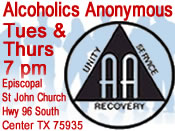March 8, 2022 - I can recall my parents, Alice and Cecil, talking about someone being “dirt-poor”. At the time I did not think much about the saying. Now that I am old I look back at this saying and wonder about its true meaning.
“Dirt-poor” is an expression that dates to the late nineteenth century United States. It means, of course, very poor. But why the dirt? It would seem that the phrase originally referred to a farmer who owned his land, perhaps with a mortgage, but had little actual cash on hand. In this way it would be akin to the present day house poor, referring to someone who owns a nice home, but because of large mortgage payments has little in the way of discretionary funds.
This concept, but not the phrase itself, can be seen in this line which appeared in the “Press and Daily Dakotan” dated July, 2, 1883. “Bismark is rich in prairie dirt, but poor in actual legal tender”. A few months later in the “Chicago Daily Tribune” dated October 14, 1883, the phrase appears in a headline, “Dirt Poor – A Board of Trade Scalper Dabbles in Printing Company Stock, with Bad Results”.
The article, which does not use the phrase itself, is about an investor who swaps valuable stock for worthless land, and so dirt poor here literally refers to worthless land, not a state of poverty.
The earliest use that I have found of “dirt-poor” clearly used to mean very poor is from a May 1890 story, “Mark's Substitute” by Velma Melville. The relevant passage is about a man who pays for a substitute to take his place in the Union Army during the Civil War, and later regrets it. The story was syndicated and appeared in a number of newspapers across the United States. It read - “I bet if I was him I'd enlist first chance now, and get my money back”, he continued. “Everybody ain't so fond of a dollar, nor so itchen for a fight as you be”, responded his wife, in the shrill treble she always used in addressing him. “I ain't no coward, none of the Moselys be”, he retorted. “Neither be the Weidmans, Dick Mosely, but they've got sense enough to look out for number one. They ain't dirt poor.”
Another early use from a syndicated story can be found in Mary Glasscock's 1893 “Under the Pines” which, again, connects the phrase to a farm: “Me and mother farmed our ground ourselves, and we've always been dirt poor, but me and Bill was always happy.”
Most “experts” seem to agree that this saying was the result of the early cabins that the pioneers constructed in which to live. Almost all were built without a wooden floor. The floor was dirt. Only the wealthy had something other than dirt, hence the saying “dirt-poor”. The wealthy had slate floors that would get slippery in the winter when wet, so they spread thresh (straw) on the floor to help keep their footing. As the winter wore on, they kept adding more thresh until when one opened the door, the thresh would start slipping outside. A piece of wood was then placed on the entrance – hence a “thresh-hold”.
A final thought here – dirt is no longer cheap. Try pricing an acre of land today, or the cost of seven yards of fill dirt for your yard. So, perhaps this phrase is no longer relevant. The old records of San Augustine County indicate that dirt back in the early 1800s was very cheap. Land sold for as little as 25 to 50 cents an acre. Downtown lots easily sold for $20. In fact, one fellow purchased nineteen down-town lots for the back taxes owed in the amount of $16 – what a bargain..! Those were the days.









